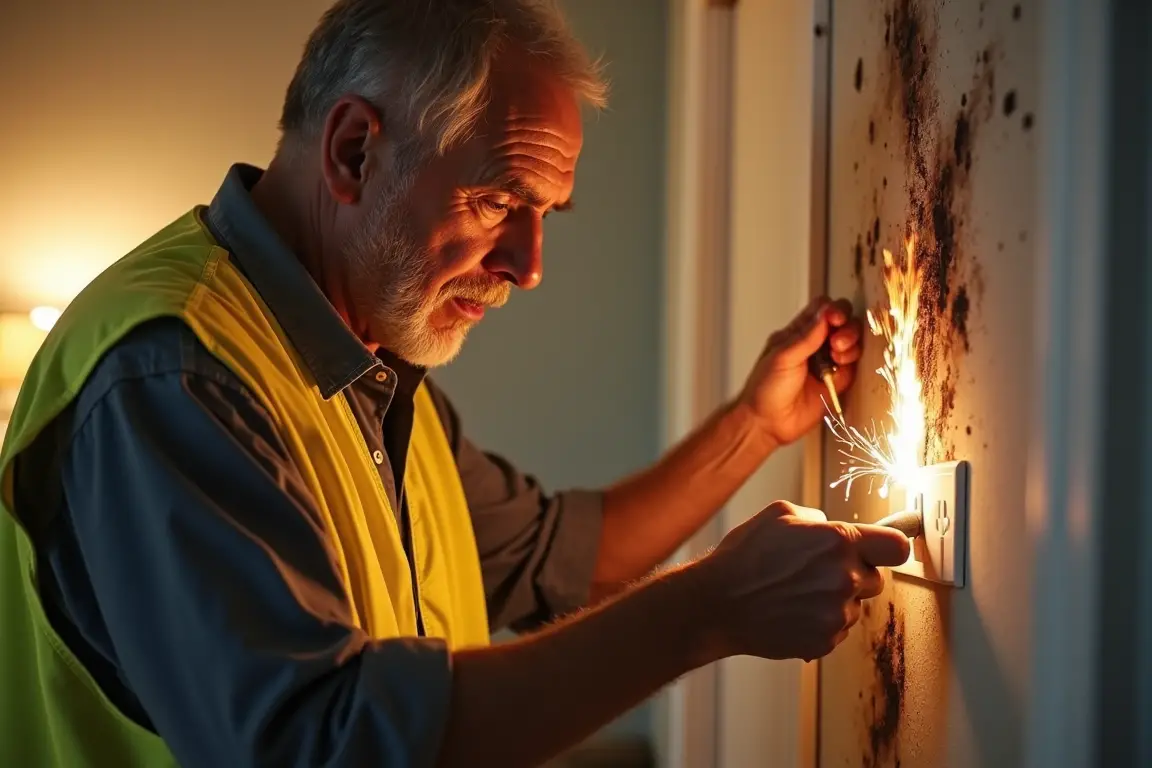Electrical safety is critical in both residential and industrial settings. Electricity powers our lives, but improper handling can lead to accidents, injuries, or even fatalities. This guide will equip you with essential knowledge to stay safe and prevent electrical hazards. Let’s explore! 🚨
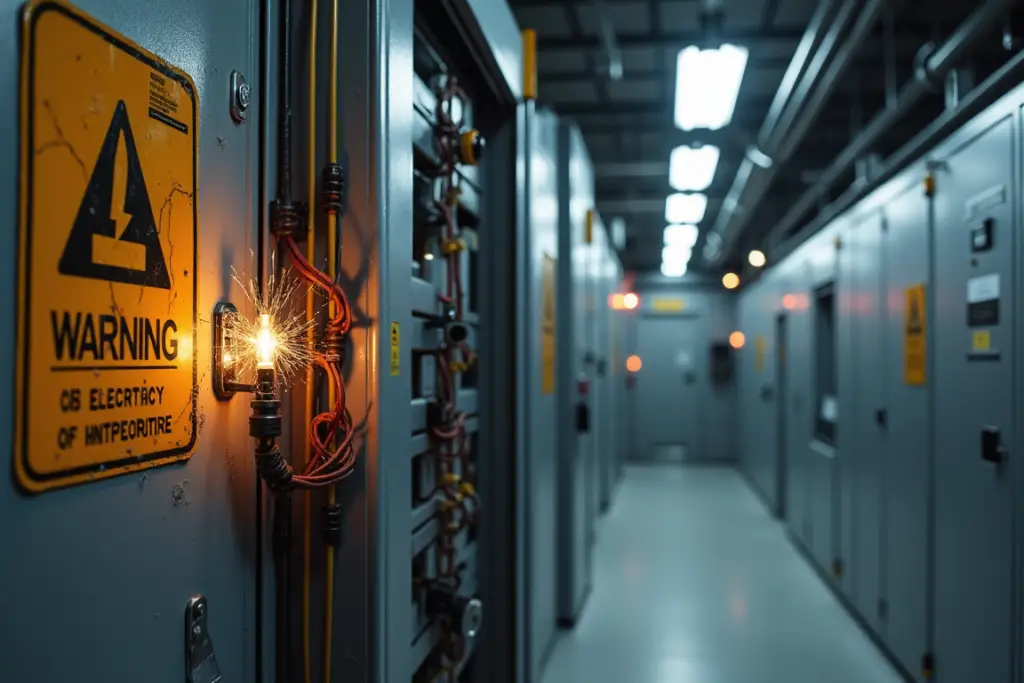
Why Electrical Safety Matters ⚡
Electricity is a powerful force. Mismanagement can result in:
- Electrical fires 🔥 caused by faulty wiring or overloads.
- Shocks ⚡ that can range from minor tingles to fatal injuries.
- Damage to equipment 🛠️, leading to costly repairs.
- Interruptions in power supply, impacting daily life or business.
Taking preventive measures ensures safety, saves lives, and protects property.
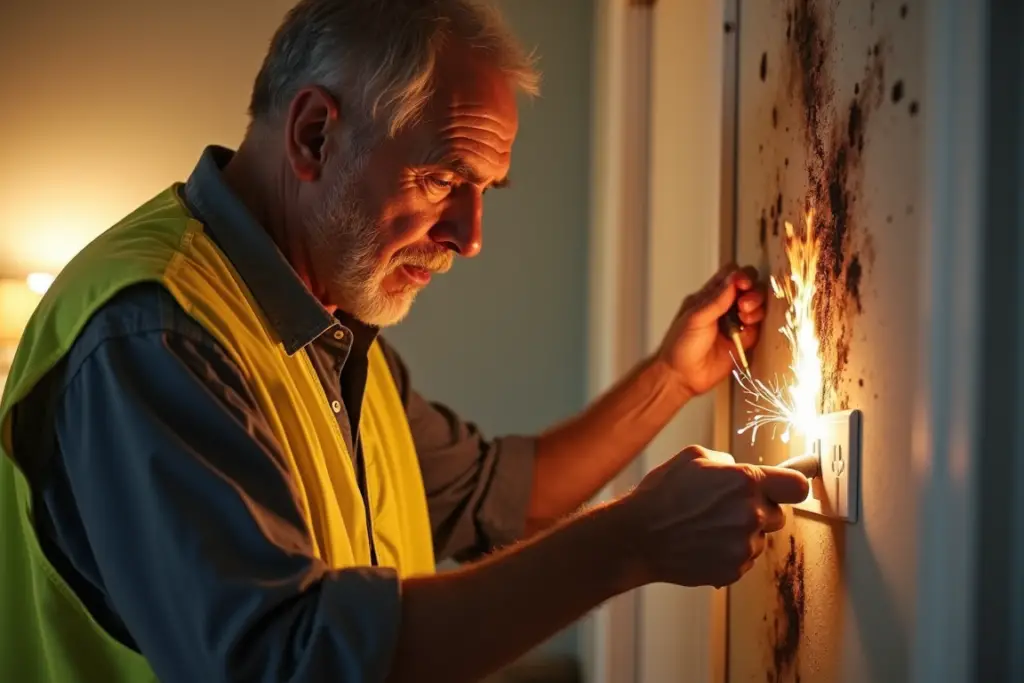
Common Electrical Hazards 🚧
Understanding potential risks is the first step in staying safe. Here are common electrical hazards and their dangers:
| Hazard | Description | Risk |
|---|---|---|
| Overloaded Circuits | Too many devices on one circuit. | Fire due to overheating 🔥 |
| Exposed Wires | Damaged insulation on wiring. | Shock or short circuits ⚡ |
| Wet Conditions | Using electrical devices near water. | Increased risk of shock 🌊 |
| Old or Faulty Wiring | Outdated systems or damaged cables. | Fire and malfunction risks 🔧 |
| Improper Grounding | No path for electricity to safely return to the ground. | Severe shocks or system damage. |
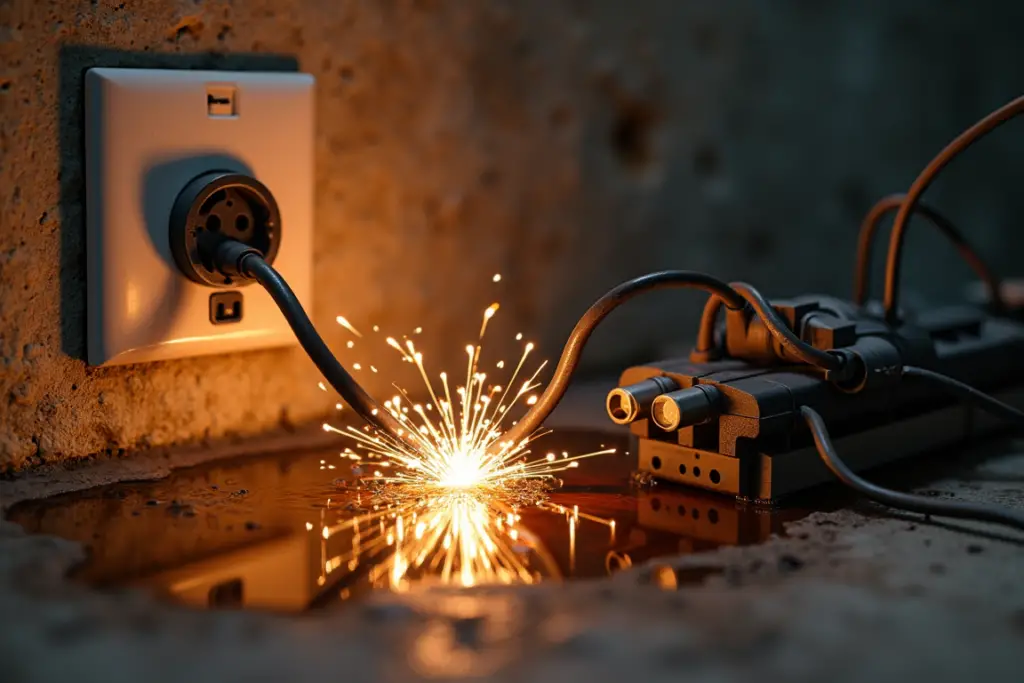
Essential Electrical Safety Tips 🛠️
To protect yourself and others, follow these best practices:
1. Inspect Regularly 🔍
Check all electrical systems and appliances for signs of wear or damage:
- Look for frayed cords, cracked plugs, or scorch marks.
- Test outlets with a tester to ensure proper grounding.
2. Avoid Overloading 🧯
Distribute electrical loads across multiple circuits:
- Use surge protectors with built-in breakers.
- Avoid plugging too many high-energy devices into one outlet.
3. Use the Right Tools 🛠️
When handling electrical tasks, always:
- Use insulated tools.
- Wear rubber-soled shoes and non-conductive gloves.
4. Keep Away from Water 🚿
Electricity and water don’t mix:
- Avoid using appliances near sinks or wet surfaces.
- Install Ground Fault Circuit Interrupters (GFCI) in wet areas.
5. Turn Off Power Before Repairs 📴
Before starting any electrical work:
- Switch off power at the circuit breaker.
- Use a voltage tester to ensure no current is present.
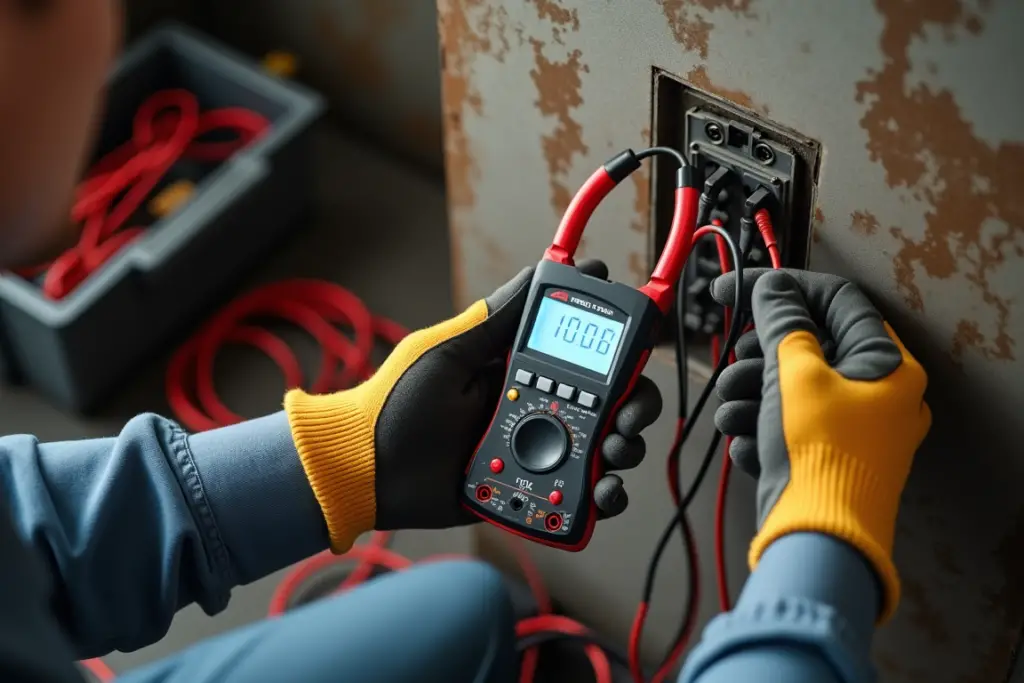
Electrical Safety in Homes 🏠
Key Areas to Focus On:
- Kitchen 🍳: Ensure all appliances have proper wiring and are plugged into grounded outlets.
- Bathroom 🚿: Install GFCIs and keep devices like hairdryers away from water.
- Living Room 🛋️: Organize cords neatly to avoid tripping hazards.
- Outdoor Areas 🌳: Use weatherproof outlets and covers for outdoor lights.

Electrical Safety at Work 🏢
Workplaces, especially industrial ones, face unique electrical risks. Follow these precautions:
1. Lockout/Tagout (LOTO) Procedures 🔒
When servicing equipment, always:
- De-energize electrical systems.
- Attach lockout devices to prevent accidental re-energization.
2. Use Personal Protective Equipment (PPE) 🧤
Wear appropriate gear, such as:
- Insulated gloves.
- Safety glasses.
- Arc flash protective clothing.
3. Maintain Safe Distances 📏
Stay away from:
- Overhead power lines.
- High-voltage equipment unless you’re a qualified professional.

Emergency Responses to Electrical Incidents 🚑
Even with precautions, accidents can happen. Here’s how to respond:
Electrical Shock
- Turn off the power source immediately.
- Do not touch the victim if they’re still in contact with electricity.
- Call emergency services and perform CPR if necessary.
Electrical Fire
- Use a Class C fire extinguisher designed for electrical fires.
- Do not use water, as it conducts electricity.
- Evacuate and call the fire department.
Equipment Failure
- Disconnect the faulty equipment from power.
- Mark the device as unsafe and report the issue to a professional.
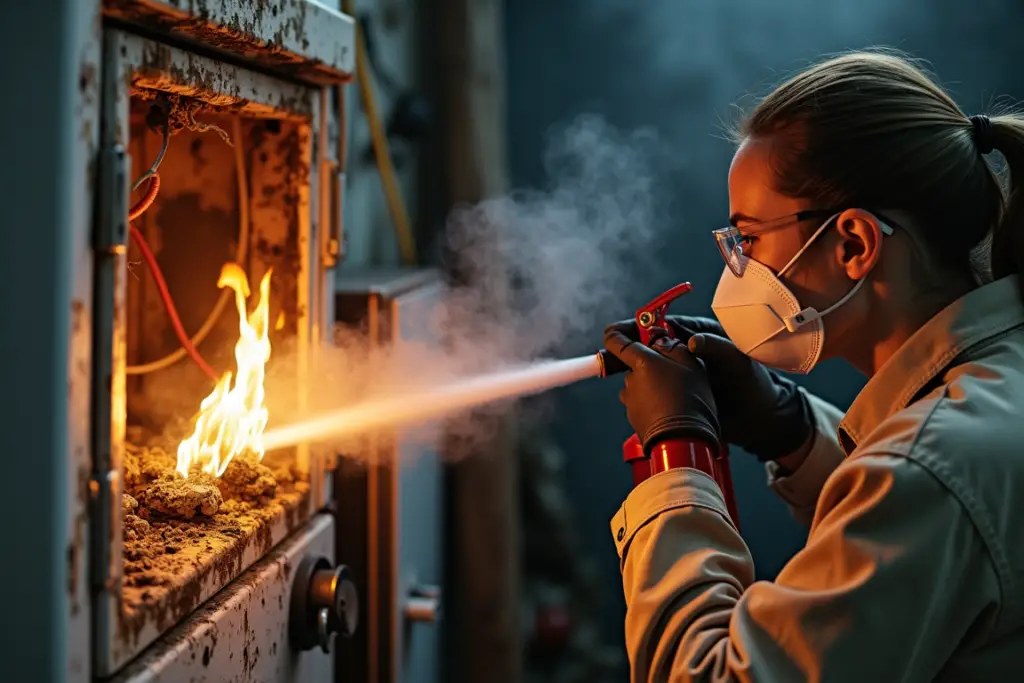
Modern Safety Devices You Should Know 🔌
Advancements in technology have improved electrical safety. Some devices to consider include:
| Device | Function |
|---|---|
| GFCI Outlets | Cuts power if it detects moisture or imbalance. |
| Arc Fault Circuit Interrupters (AFCIs) | Prevents fires by detecting arcing conditions. |
| Surge Protectors | Shields devices from power spikes. |
| Smart Circuit Breakers | Monitors and controls power usage remotely. |
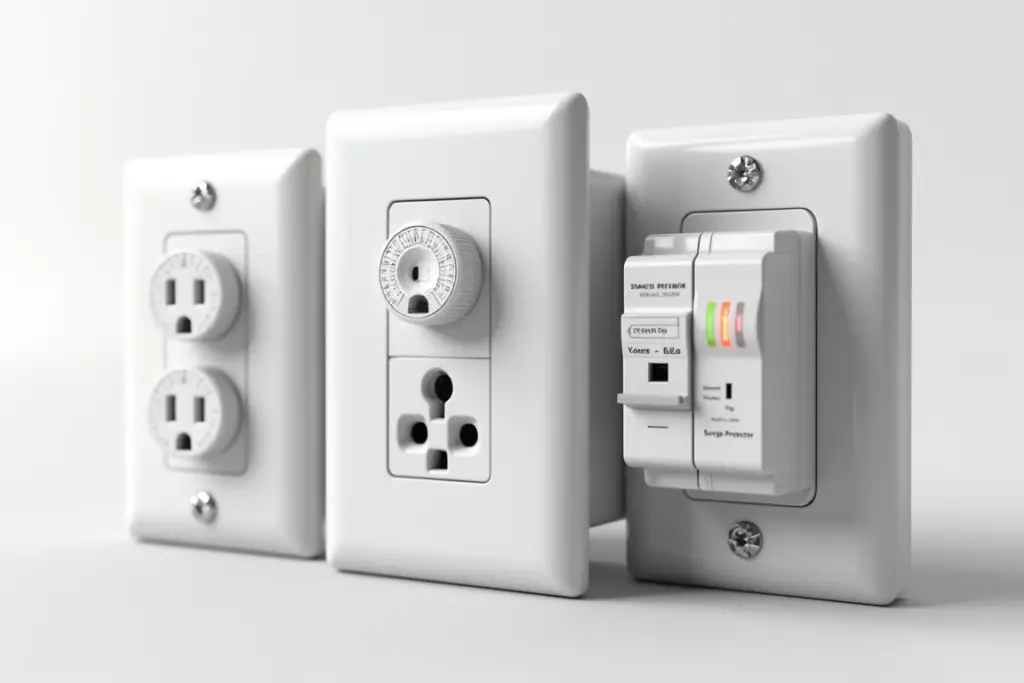
Educating Future Generations 🧠
Teaching electrical safety to children and new professionals is crucial:
For Kids:
- Use child-proof outlet covers.
- Teach them not to touch outlets or cords with wet hands.
For Young Engineers:
- Emphasize hands-on training.
- Share real-world examples of electrical safety practices.
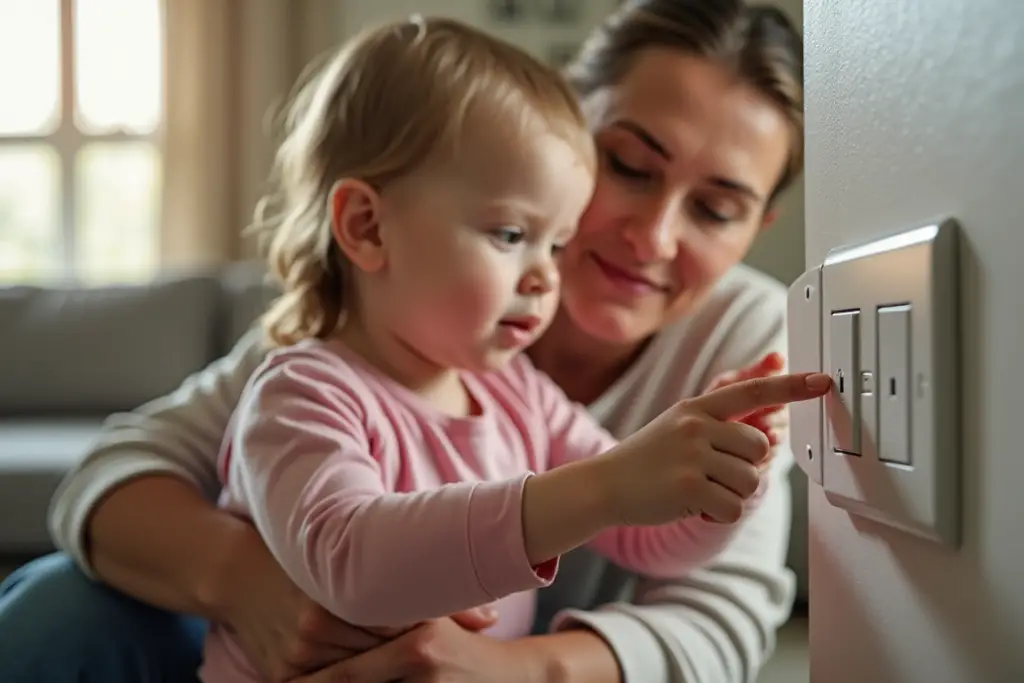
Frequently Asked Questions (FAQ) ❓
Q: What should I do if I smell burning near an outlet?
A: Immediately turn off the circuit breaker and unplug devices. Call a licensed electrician to inspect.
Q: Can I fix frayed wires myself?
A: It’s safer to replace damaged cords or hire a professional. DIY repairs can lead to further risks.
Q: Are extension cords safe for permanent use?
A: No. Use them only temporarily to avoid overheating or fire hazards.

Final Thoughts 🌟
Electrical safety isn’t just a precaution—it’s a necessity. By following these tips and investing in modern safety tools, you protect yourself, your loved ones, and your property. Whether at home or work, always treat electricity with respect. Stay informed, stay cautious, and stay safe! 🔌✨


